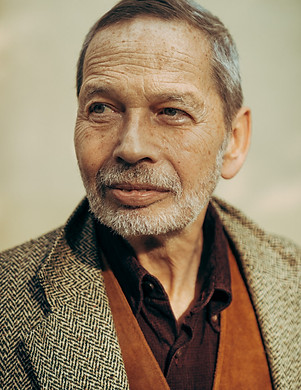I did not realise I was a populist, nor did I describe myself as such until a fateful night in Amsterdam on 2 August 2018. On that night I was giving a lecture at the De Balie cultural centre on the topic of ‘Understanding The Cultural Turn’.
The aim of my lecture was to question the widespread tendency to treat populism as an alien threat to democracy and denounce it as either an expression of authoritarianism, or the far right or even as fascist. I tried to counter what I perceived as a form of anti-populist hysteria and argue that at its core, populism was seen by its supporters as simply a demand for voice.
I tried to explain that people voting for the populist parties expressed a desire to be taken seriously, they wanted to be part of the conversation and not taken for granted by their political masters. During the discussion following my lecture I tried to underline the connection between the upsurge of different populist movement and the aspiration for democracy. Some members of the audience were taken aback by the importance I attached to the valuing democracy. One of them appeared surprised by what I said and asked if I believed that democracy was a value in and of itself. When I said it was and suggested that being democratic and living up to its spirit was more important than its outcome some of the people in attendance appeared shocked. They seemed more concerned about the threat of wrong people being elected than with upholding the right of people to influence the direction of their society.
It was at this point in time that I finally grasped that the main driver of anti-populist hysteria was an anti-majoritarian contempt for the working of democracy. It was at that moment that I decided to identify as a populist and do my best to give voice to the aspirations and ideals of its supporters.
Populist movements, are often represented in the media as irrational, driven by anger and therefore easily dismissed as emotional. Supporters of this movement are frequently devalued on the ground that they do not understand its own interest, lacks the sophistication to deal with complex issues, and is easily swayed by demagogues. According to the caricature favoured by the mainstream media, populists are emotional and prejudiced and probably racists and homophobic, if not border-line fascists. Other qualities associated with the populist mind-set are a disposition towards religiosity, nationalism, traditionalism and very conventional ‘out of date’ lifestyles.
Many of the sins attributed to populists are sentiments and beliefs that in the 19th and 20th century would have been associated with classical conservatism of with Christian Democracy. But the importance that supporters of populism attach to their community’s tradition, to the family, religion and nation are now often denounced as not only outdated ideals but also as a manifestation of intolerance and extremism. In the current era opposition to gender ideology, open borders and multiculturalism are treated by the western European political establishment as equivalent to a cultural crime.
Throughout the western world many people feel alienated and estranged from their governments and institutions. They feel patronised by advocates of technocratic governments, and they have become sceptical towards the so-called truths communicated by professional politicians and experts. In turn, many representatives of the cultural elite claim that the people no longer care about the truth. What they really mean is that people don’t care about their version of the truth. So when the French celebrity philosopher Bernard- Henry Levy complained that people have ‘lost interest in whether politicians tell the truth’, what he describes is an electorate that no longer shares his system of values.
I identify as a populist because I am convinced that the people supporting this outlook are likely to be more reliable defenders of the cultural legacy that underpins European civilisation. The leaders of populist parties don’t always get everything right and sometimes lack wisdom and maturity but the movements they represent are the best hope for ensuring that European societies retain historically significant values.
Should the populist project gain further ground and succeed in influencing the younger generations than something new and exciting can be born. After decades of confusion and moral disorientation I can now imagine a world where the growth of populism can become the harbinger of the new European Renaissance. This will not happen spontaneously. The new movements are still finding their feet, they need to turn their ideals into a strategic vision that can connect the aspiration of people for solidarity and community to a future oriented political outlook. We have our work cut out!
